Find the Complex Solutions of F
Our Verdict
We like F-Secure Anti-Virus for its speed and simplicity, but it's short on features, not very configurable, and potential issues with its self-protection and Protected Folders are a concern.
For
- Clear and simple interface
- Speedy scans
- Very easy-to-use
- Reasonable prices
Against
- Few features
- No URL blocking
- Vulnerable to attack from malware
- Protected Folders feature didn't work for us
TechRadar Verdict
We like F-Secure Anti-Virus for its speed and simplicity, but it's short on features, not very configurable, and potential issues with its self-protection and Protected Folders are a concern.
Pros
- + Clear and simple interface
- + Speedy scans
- + Very easy-to-use
- + Reasonable prices
Cons
- - Few features
- - No URL blocking
- - Vulnerable to attack from malware
- - Protected Folders feature didn't work for us
Please note
This is our all-in-one roundup reviewing every F-Secure consumer security solution for 2021. On this page, after our brief intro, you'll find
(a) a full evaluation of the entry-level F-Secure Anti-Virus, along with our reviews of the additional features incorporated with the rest of the range:
(b) F-Secure SAFE, and
(c) the top-end package F-Secure Total
You can jump to the reviews of those individual products by clicking on the links in the bar at the top of this page, but bear in mind that this article is really designed to be read all the way through, as the features of F-Secure Anti-Virus are also present in the higher-level security suites, of course.
Finnish security vendor F-Secure has an interesting consumer antivirus range built around three main products.
F-Secure Anti-Virus is a no-strings package which provides core antivirus protection for PCs only. It's basic, doesn't even include malicious URL filtering, and there are no significant extras.
We can't argue with the price, though, at $40 to cover three devices for a year. Bitdefender and Kaspersky both charge an initial $30 to protect three devices for a year with their basic antivirus, but this leaps to $60 on renewal.
- You can sign up for F-Secure's Antivirus solutions here
F-Secure SAFE is a more capable package which adds URL filtering, banking protection, simple parental controls and protection for Mac, Android and iOS devices. That's good news, but it's still missing some of the features you might expect from an internet security suite, such as a firewall, spam filter or password manager.
Pricing is fair, with a three device, one-year license costing an initial $35, then $70 on renewal, and more savings available as you add devices and years. It's broadly comparable to other security suites, although might feel more expensive as you don't have quite as many features.
F-Secure Total is essentially F-Secure SAFE with unrestricted access to F-Secure's Freedome VPN, and F-Secure ID PROTECTION, the replacement for the company's KEY password manager.
ID PROTECTION still includes a password manager, but you now also get dark web monitoring. F-Secure monitors the web for signs of your personal information being leaked in a breach, and raises an alert if anything appears.
Norton 360 Deluxe does much the same, but F-Secure claims to have some advantages, in particular by using 'a combination of human intelligence and Dark Web monitoring to recover breach data up to 6 months faster.'
Prices jump to $90 to cover up to three devices for a year, or $110 to cover five.
That's not bad, but Norton 360 Deluxe offers antivirus, dark web monitoring, 50GB of cloud backup space and an unlimited VPN for $40 in year one, $105 on renewal (that's to cover five devices.)
Alternatively, although Avira Prime doesn't have dark web monitoring, it gets you antivirus, VPN and a bunch of other maintenance and security tools for only $100 a year, or $9 a month to try it out.
F-Secure Anti-Virus
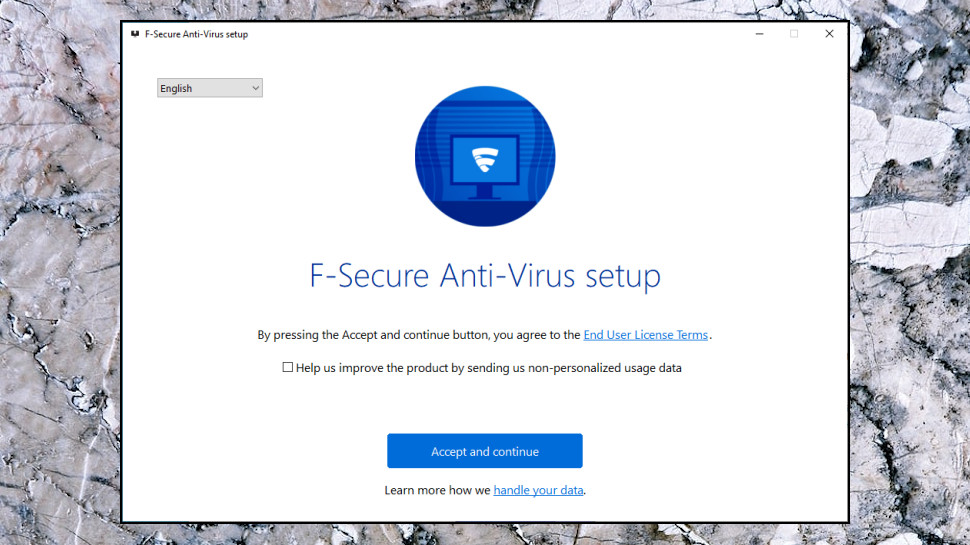
Trying out F-Secure Anti-Virus is easy, with a free trial download on the site, and a simple installer which set up our system within a couple of minutes.
The antivirus made average use of system resources for a starter product, grabbing around 500MB of storage space, and adding six background processes to our PC.
We ran the top Windows benchmark PCMark Professional before and after installing F-Secure Anti-Virus, hoping to detect any impact on speed, but the difference was tiny, within the margin of error we'd expect from running the test a couple of times.
Was this a problem with our testing procedure, we wondered? Maybe not. AV-Comparatives' October 2020 Performance Test placed F-Secure in first place out of 17 for its minimal system impact.
We're not just interested in the size of an antivirus package; we test how well it protects its installation from attack, too. Malware often tries to disable any security tools it detects, so it's important that a product can defend itself.
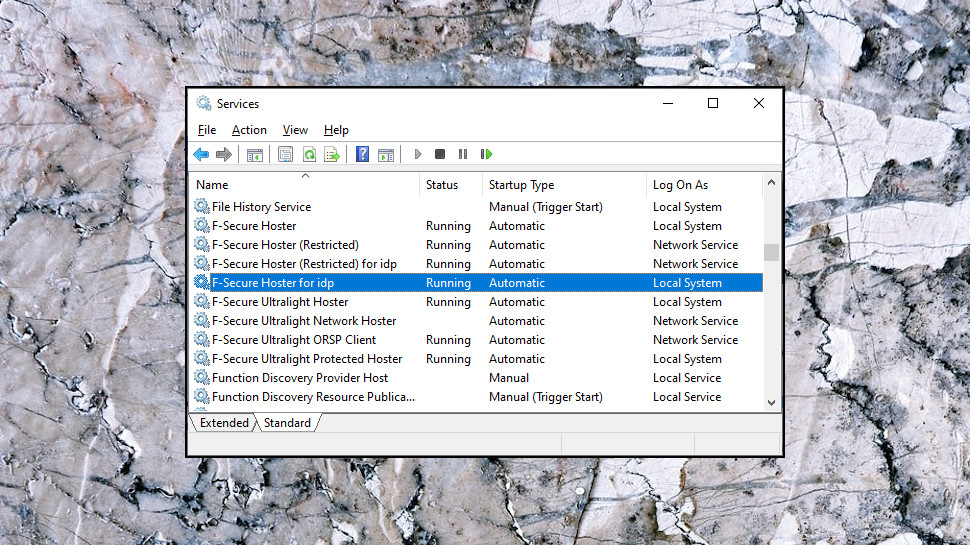
F-Secure Anti-Virus started uncertainly, as we were able to close and disable some services, but not others. Had this damaged our protection? It was hard to tell.
Then, though, we delivered a major blow by unloading one of F-Secure's key drivers with a standard Windows tool, breaking the ability to detect malicious files as they're written to disk. With the driver running, downloading a malicious file in Chrome resulted in a 'Failed - Downloading error' warning; afterwards, it downloaded without any issues.
This isn't an easy security hole to exploit. An attacker would somehow need you to run malicious code on your system with admin rights, and without being detected by F-Secure. And even if he managed that, and downloaded a malicious file, F-Secure Anti-Virus should detect it in RAM, or via its behavior.
Still, this is a weakness that we rarely see with other antivirus, and it also leaves us wondering if there might be others (our time was as limited as our hacking skills, and a serious attacker might have many more ideas.) We reported our findings to F-Secure, though, and hopefully the company will quickly address any issues.
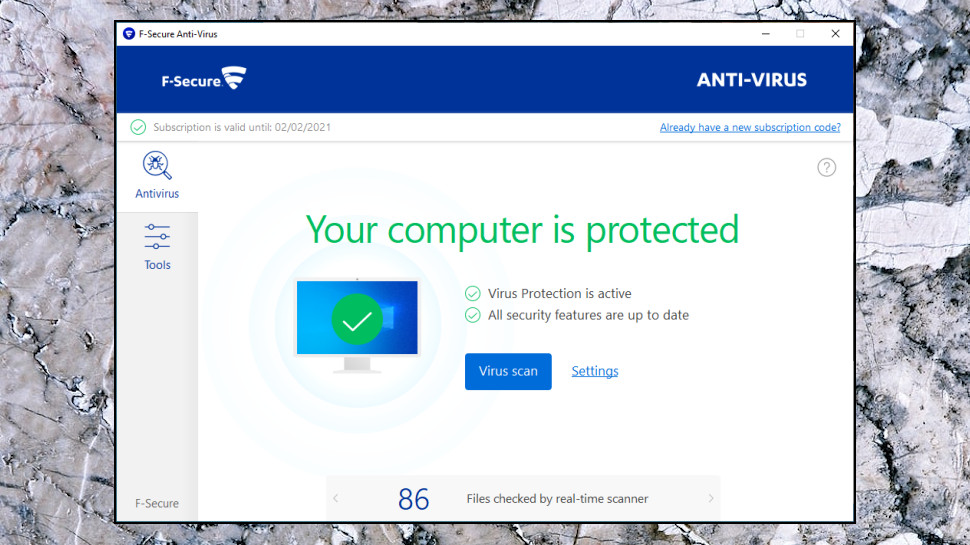
Antivirus
If you're used to antivirus products trying to win you over with stacks of bonus features, F-Secure Anti-Virus will disappoint, because it doesn't have any. There's barely anything beyond antivirus scanning and the related security layers and settings.
This approach pays off with F-Secure's interface, which is just about as simple and straightforward as you'll ever see. The main console has two buttons: Virus Scan and Settings. Tap the first and F-Secure Anti-Virus runs a very quick scan (under a minute on our test system), deals with any threats automatically and displays its verdict. Tapping the Settings button reveals a very minimal set of configuration options.
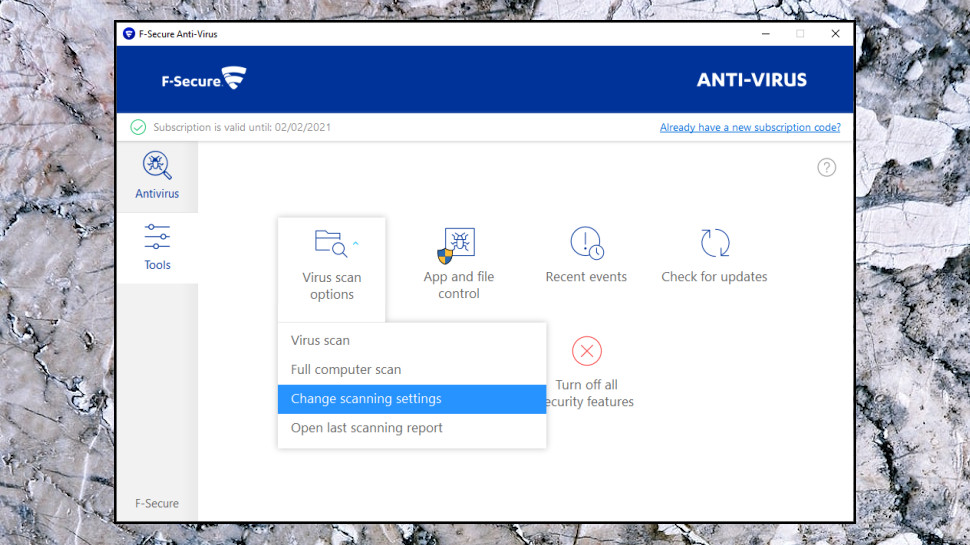
Experienced users might be a little frustrated by the lack of features and control. F-Secure doesn't give you a choice of scan types on its main console, for instance, running a quick scan by default. There is a full system scan, if you can track it down (it's tucked away behind the Virus Scan Options button), but we couldn't create a custom scan type.
Heading for the Settings panel didn't help. While competitors like Avast and Avira have a mass of manual scan tweaks and configuration options, F-Secure has just two simple checkboxes: 'Scan only known file types', and 'Scan inside compressed files.'
You can run targeted scans by right clicking a file, folder or drive and choosing Scan For Viruses. These are speedy, even initially, and get faster in subsequent runs. The app checked 50GB of executables in around 19 minutes at first, for instance, faster than most, dropping to 14 minutes when we checked again.
F-Secure supports parallel scans, too, an improvement since our last review. If a scan is running in the background, you no longer have to wait before running another, maybe checking a USB key. Just right-click the key in Explorer, choose the Scan option, and the app opens another scan in its own window. Most users won't do this often, but it's a welcome usability plus.
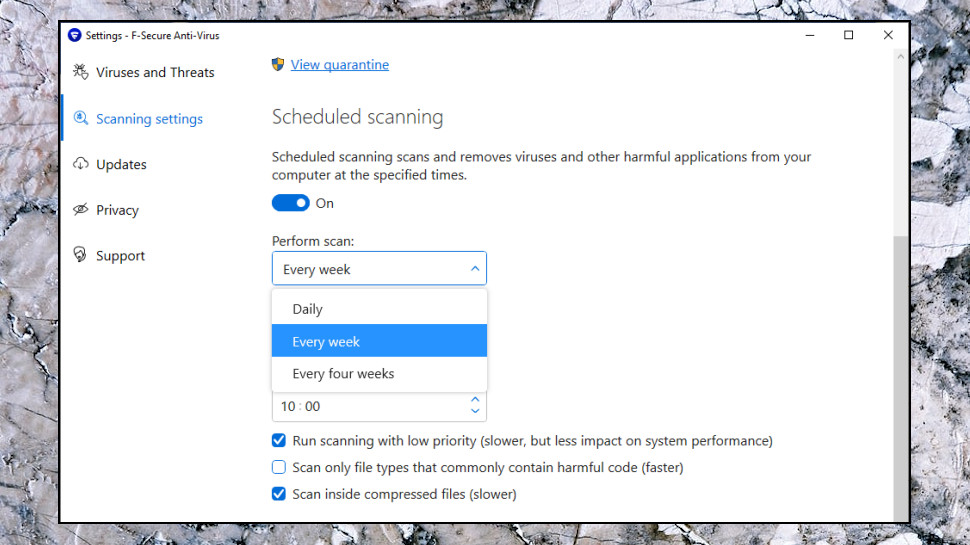
Support for scheduled scanning allows the package to automatically check the system, but again, there's very little control. You can't ask F-Secure Anti-Virus to check specific files or folders, for instance - it must be a standard scan - and the only interval options are daily, weekly or every four weeks.
There's a small but worthwhile extra in F-Secure's ransomware protection feature, which prevents untrusted applications from accessing files in whatever folders you'd like to keep safe. This isn't a new or unusual idea - Windows 10's 'controlled folder access' feature does much the same thing - but it's still a handy extra layer of ransomware-blocking protection.
F-Secure Antivirus is short on scanning options, then, but it's also speedy, accurate and easy-to-use.
The lack of URL blocking is a downside, but you're still protected by F-Secure's other layers. When we accessed a page containing a crypto miner script, F-Secure allowed the HTML page to download, but then detected the threat within the file before it was able to launch. Even without URL blocking, you're still very well defended.
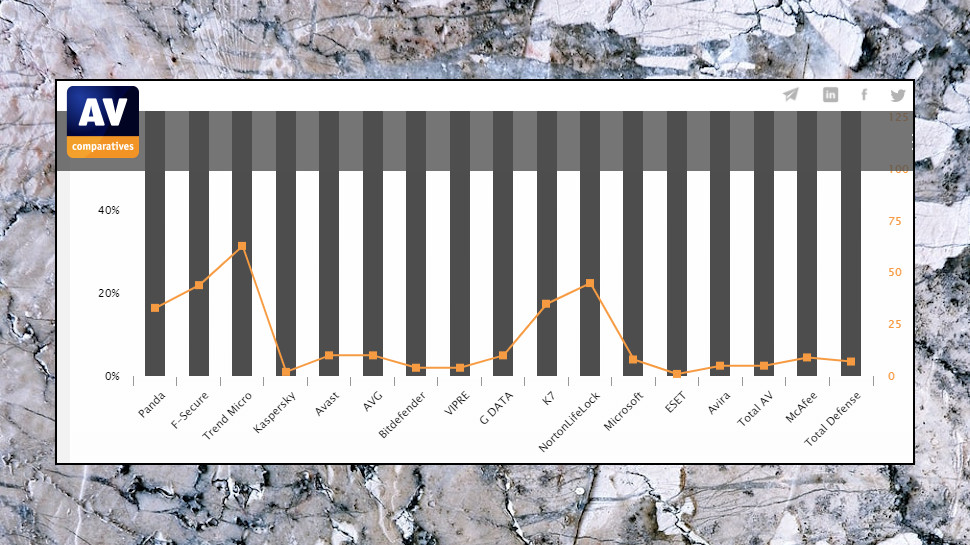
Protection
AV-Comparatives Real-World Protection Test pits 17 top antivirus engines against some of the very latest malware, then explains in detail who's come out on top.
The July-October 2020 summary report placed F-Secure in second place, one of only three vendors to block 100% of test threats (Panda and Trend Micro were the joint winners.)
(This isn't quite as impressive as it seems, because F-Secure had a very high 44 false positives. Kaspersky came fourth with a protection rate of 99.7%, but it did this with only two false positives. F-Secure's protection rate is higher, but that's because it's raising more alarms, many of them false, and these may translate into major hassles in real-world use.)
AV-Test's October 2020 Home User report also showed F-Secure blocking 100% of test threats, and that's no fluke; it did the same in five out of six tests in the previous year.
SE-Labs' Home Anti-Malware Protection report for October-December 2020 wasn't nearly as impressed, though, placing F-Secure in 9th place out of 13 for protection. We'd probably put more weight on the combined and more positive verdicts of AV-Comparatives and AV-Test, but perhaps running our own tests would tell us more.
Testing
We had no issues with F-Secure Anti-Virus in our own file and behavior monitoring checks. Our test executables use all kinds of very suspect tricks - launch one Windows tool, which launches PowerShell, scripting it to use another Windows tool to download a malicious file - and F-Secure jumped on most of these, raising an alert and killing the process so it couldn't cause any more damage.
To complete the review, we launched our own custom ransomware simulator on the F-Secure Anti-Virus system. As the simulator has never been publicly released, F-Secure couldn't have seen it before, in theory making the threat far more difficult to detect.
F-Secure has blocked our simulator from its file signature in the past, but missed it this time. Our test threat launched successfully and encrypted thousands of user documents without F-Secure Anti-Virus' behavior monitoring raising any red flags.
F-Secure's Protected Folders system enables defining specific folders which the app says are then 'protected from encryption blackmail (like ransomware.)' That would surely protect our test data, right? Nope: our simulator encrypted them all.
These results must be interpreted with care. We know from lab testing that F-Secure blocks most ransomware without difficulty, even the most sophisticated of zero-day threats, so it seems odd that our tiny simulator got through. As it isn't real malware, perhaps F-Secure Anti-Virus believed it was a legitimate application, maybe a genuine encryption tool, and so allowed it to run unrestricted.
Still, while we can't be sure what happened or why, these results make us a little nervous. When an antivirus is faced with an executable file it's never seen before, engaging in very ransomware-like behavior, and encrypting files within a protected folder, we would expect it to at least raise an alert, asking the user if this was okay. The fact that didn't happen has to be a concern.
Final verdict
F-Secure Anti-Virus is fairly priced, compact, easy to use and with mostly positive results from the testing labs, but unexpected review issues including its ineffective Protected Folders system leave us with some concerns.
F-Secure SAFE
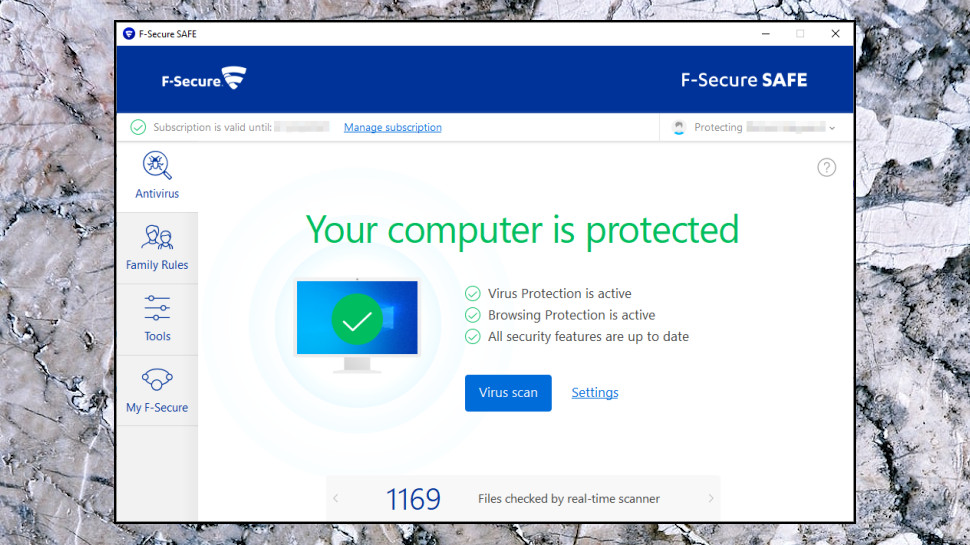
F-Secure SAFE extends the company's antivirus package with URL filtering, banking protection, parental controls and additional apps to protect Mac, Android and iOS devices.
New features include stalkerware protection and an ad blocker for iOS. There's smarter browsing protection, Windows banking protection should no longer block trusted applications, and the Family Rules parental controls system now supports daily time limits and bedtime to be set across all supported macOS versions and accounts.
These are all useful features, but they still leave us feeling a little underwhelmed. URL filtering comes as standard with most baseline antivirus packages, for instance. And moving up from antivirus usually gets you many more features than you'll see here. Bitdefender Internet Security includes a firewall, spam filter, webcam protection, a microphone monitor, and a bunch of smaller privacy extras (password manager, file shredder, simple encryption tool, wireless network scanner, more.)
Opting for F-Secure may not save you much cash, either. Bitdefender Internet Security 2020's three device, one-year license is priced at $35 in year one, $80 on renewal; the equivalent F-Secure figures are only marginally cheaper at $35 and $70.
Still, if you only need the security basics, F-Secure's simpler and more lightweight approach may be an advantage, and it's certainly worth taking a look at the suite's additional features.
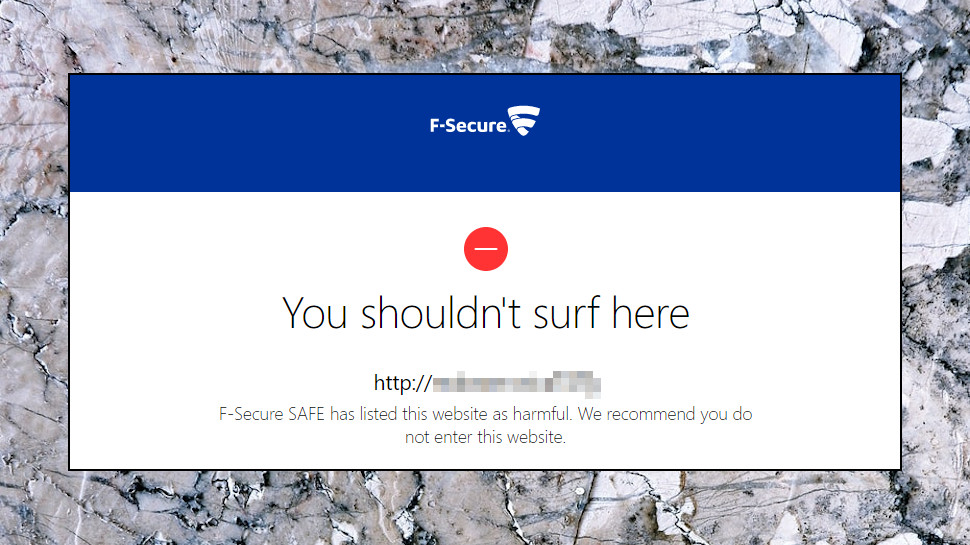
Malicious URL filtering
F-Secure's Secure Browsing feature uses a combination of browser extension and network-level technologies to protect you from web threats.
This starts by displaying a 'reputation rating' icon next to every link in your Google, Bing and Yahoo! search results. Restrict your clicks to URLs with a green tick for 'safe' and you'll immediately avoid some risks.
A second layer of protection blocks known harmful sites, as well as 'suspicious' websites or anything with 'prohibited content' (depending on possible parental control settings.)
The feature is reasonably configurable, handy if you find it blocks legitimate sites. If a link is falsely flagged, you're able to add it to an Exceptions list in a click or two. And if you still run into a few hassles, you can reduce detection sensitivity by keeping blocking for harmful sites, but turning off 'suspicious' website blocking.
Measuring the accuracy of any URL filtering layer is tricky, and F-Secure proved particularly difficult. We couldn't use our regular automated testing framework due to a technical conflict with the way F-Secure works (our issue, not F-Secure's), and it's not been benchmarked by the labs recently.
Hand testing of malicious links found F-Secure had only average blocking success, though, and AV-Comparatives' 2019 Anti-Phishing Certification Test (old, but the last one where F-Secure appeared( reported similar results. It found F-Secure SAFE blocked a creditable 85% of threats, but it still lagged the five other contenders: Avira (88%), Avast (94%), Kaspersky (94%), Kaspersky (97%) and Bitdefender (98%).

Banking protection
Banking protection is a common security suite feature, and usually involves using a custom hardened browser to carry out your most important online transactions. But F-Secure's Windows banking protection feature does things very differently.
When you visit a known banking website, F-Secure SAFE disconnects all untrusted applications from the internet and prevents them going back online while you're at the site. It also blocks untrusted websites until your transactions are complete.
These are drastic steps, but an alert warns you what's happening, and SAFE highlights your screen with a green border as a reminder. Banking protection ends automatically when you leave the site, or you can shut it down manually with a couple of clicks if it's interfered with any legitimate apps.
This has improved since our last review, when Banking Protection didn't fire up when we accessed some major sites, including PayPal.
But we're unsure how useful this really is. SAFE may stop malware connecting to the internet while you're at the banking site, but if it's already running on your system, collecting keystrokes, maybe taking screenshots, you're already in big trouble. If it can't send your stolen credentials while you're at the site, our guess is it'll just try again later.
On balance, we prefer banking protection which uses a separate and isolated browser. Bitdefender's Safepay is less convenient to use, for instance, but it immediately improves your security by not having any extensions, and it takes low-level technical steps to defeat both keyloggers and screen capturing malware.
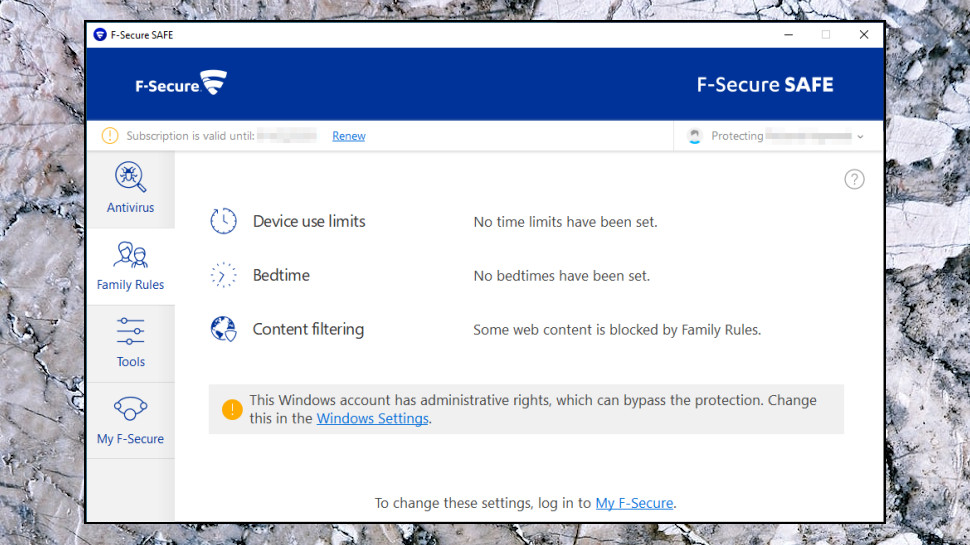
Parental controls
F-Secure's Family Rules is a basic parental controls system which enables setting device screen time limits, blocking access to websites by content type, and (on Android and iOS) locating lost or stolen devices.
Device usage can be restricted to a total amount of time per day. Options range from 15 minutes to 8 hours, but you're forced to choose from a small number of preset times. For example, if a 3-hour restriction isn't quite enough, your next options are 3 hours 30 minutes, 4 hours, then 5, 6, 7 and 8. Would it really be so difficult to allow a user to enter a specific number of minutes?
All these settings are applied to a specific device, too (or a user account on a device, for PCs.) If your child has two or more devices, you'll need to set them up individually, and think carefully about how any usage time should be split.
Although you're not able to define when during the day your child should use his time allowance, a Bedtime feature limits device use during nighttime. You're able to set when the device is turned off and becomes available in the morning, although again, SAFE limits the time you choose. (If the default 7am is fractionally too early, for instance, you can't set it to 7:15 or 7:45; your next choices are 7:30 or 8pm.)
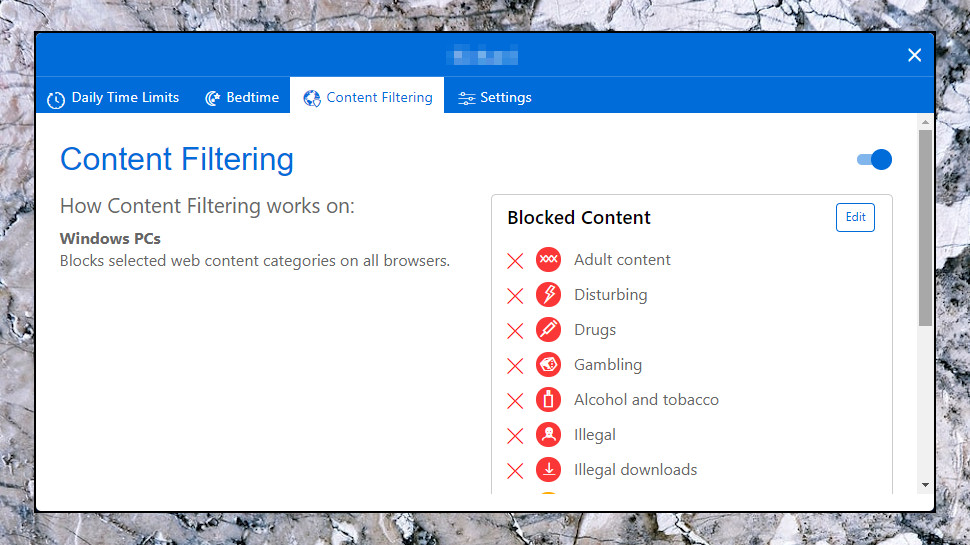
A content filtering system enables blocking access to websites by their type. This only has 14 categories (Adult, Drugs, Gambling, Violence, Social Networking and so on) so is quick and easy to use, although doesn't give you much opportunity for fine-tuning.
F-Secure's Finder is a simple anti-theft service which enables finding your lost Android and iOS devices.
SAFE for Android also supports remote device wiping and locking, useful if you suspect your device isn't coming back any time soon.
Family Rules is easy to use, but short on features. If you're happy with the parental controls basics, it might just about be enough, but everyone else will be better off elsewhere.
Multi-platform
The major benefit of F-Secure SAFE is probably its protection for Android, Mac and iOS, as well as Windows devices.
Both the Mac and Android apps have much the same feature set as the PC edition: antivirus, browsing protection, banking protection and parental controls.
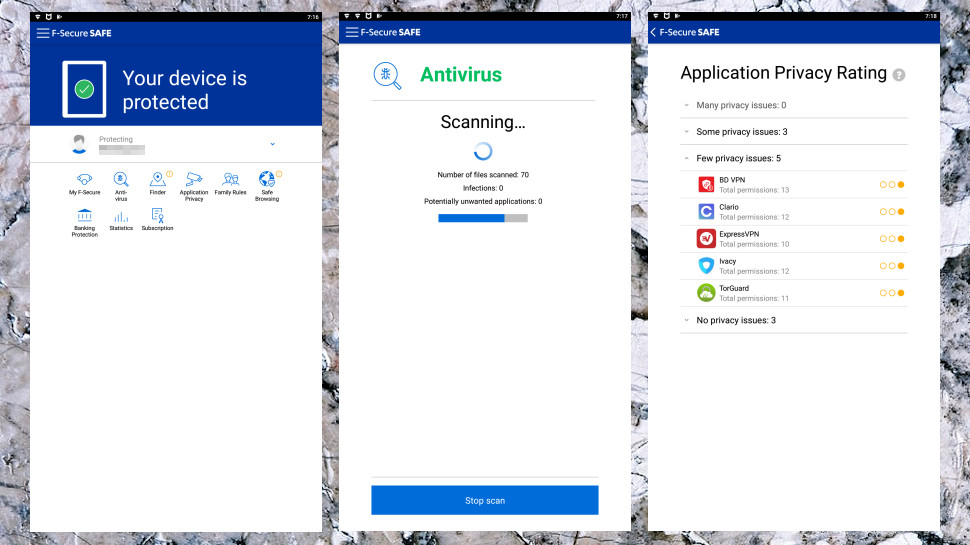
The Android app gets more mobile-specific features, including anti-theft tools and an Application Privacy tool which identifies apps that can access your personal information.
F-Secure SAFE for iOS is more limited, as usual with security apps, but still covers some useful functions: browsing protection (when using SAFE's own browser), parental controls, limited banking protection (an indicator highlights safe sites) and basic anti-theft.
None of this helps with SAFE's basic issues. Yes, you can run it on everything, but there still aren't that many features, and what you get isn't always great.
If you're an F-Secure fan who likes the company's simpler approach to security, though, paying just a little extra to cover all your devices could be a good move.
F-Secure Total
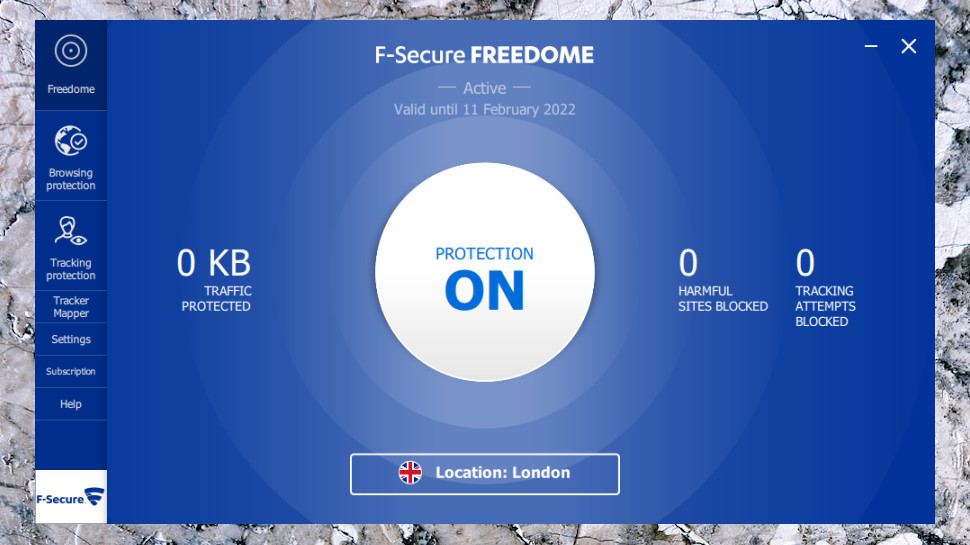
F-Secure Total is a bundle of three top F-Secure products.
F-Secure SAFE gets you antivirus, browsing protection, banking protection and more for desktop and mobile devices. Find out more about its features in the F-Secure Anti-Virus and SAFE reviews above.
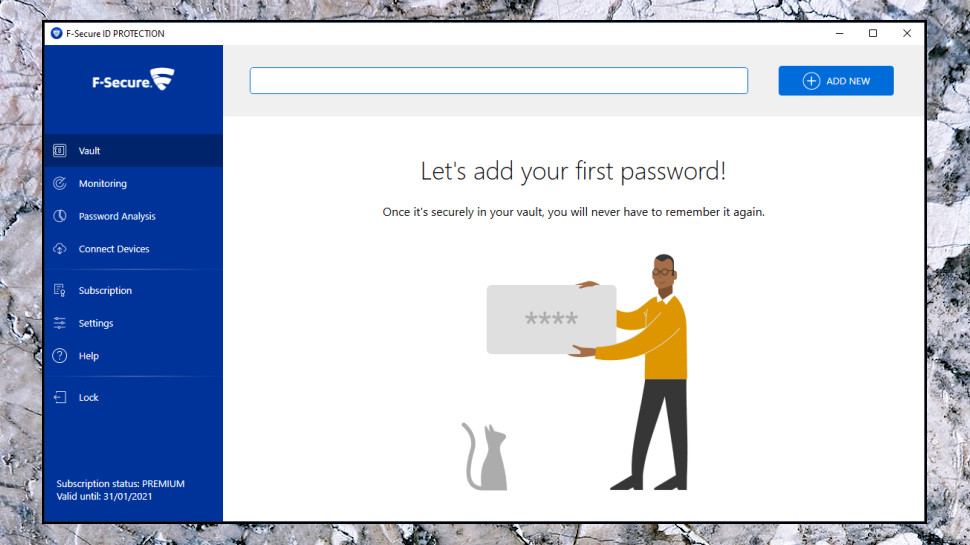
F-Secure ID PROTECTION is the new incarnation of its KEY password manager. It still generates secure passwords, stores your logins, credit card details and other personal data and synchronizes it across all your devices. But new dark web monitoring is constantly looking for your personal details appearing in a data breach, alerts you immediately if anything turns up, and includes guidance on what to do next.
The password manager covers the basics, but it doesn't have the features, the form-filling power or configurability to match the specialist competition. Just one example: it has browser extensions for Chrome and Firefox only. If you're hoping to automatically fill your login pages on Safari or Edge, then get ready for disappointment.
We didn't test F-Secure's dark web monitoring, but this also looks a little basic. It only looks for email addresses, for instance, and you're limited to a single address per protected device (so 5 in total for a basic license.) Depending on your plan, Norton's Dark Web Monitoring feature can also look for mailing addresses, phone numbers, credit card numbers, insurance IDs and more.
If you're keen, though, it's easy to find out more - a free five-day trial allows sampling the service on Windows, Android, iOS and Mac. This isn't feature-limited, either, unlike the old free KEY password manager; you get to try out everything.

The key feature with F-Secure Total, though, is F-Secure's Freedome VPN. This isn't the cut-down demo service you'll get with some security suites, where you're restricted to maybe 200-500MB data transfer a day. It's the full product, with servers across 23 countries, tracker blocking, a kill switch to protect you if the VPN drops, and absolutely no data limits at all.
Our own Freedome review found it was much the same as most other F-Secure products: short on power and not many features, but easy to use, good at unblocking (it worked with US Netflix, Amazon Prime Video and Disney+ for us) and a decent performer overall.

Value
Freedome is a major plus for F-Secure Total, but it also bumps up the price, and it could take some math to figure out if this is a worthwhile deal for you. Let's work through one example.
A three device, one-year license for F-Secure SAFE costs $35 in year one, then $70 on renewal.
A separate three device, one-year Freedome license is priced at an initial $35, rising to $55 on renewal. Add it to SAFE and that's a total of $70 in the first year, $125 afterwards.
Opting for F-Secure Total instead gets you SAFE, Freedome and ID PROTECTION, and costs $90 for the same three device, one-year term.
Even if we ignore ID Protection, that means you're getting Freedome VPN for $55 in year one, but an amazing $20 after that (an effective $1.67 a month.)
Freedome isn't the best VPN, but it covers the basics, and this is much cheaper than most of the competition. Even a budget VPN provider like Ivacy asks $42 for year one, $60 on renewal (although that does cover up to five devices.)
But if you're not committed to F-Secure, there are similar deals around from some security suites. Avira Prime has a capable set of features, including an unlimited VPN, and although it starts at a marginally more expensive $100, that covers up to five devices for a year.
Buying F-Secure Total makes a lot of sense for F-Secure fans, then, but if you've not already decided you need F-Secure SAFE, the picture isn't as clear. Shop around, and make sure to try before you buy.
- We've also highlighted the best antivirus software
Mike began his career as a lead software developer in the engineering world, where his creations were used by big-name companies from Rolls Royce to British Nuclear Fuels and British Aerospace. He now covers VPNs, antivirus and all things security for TechRadar, although he still has a secret love of quirky open-source and freeware apps which find brand new ways to solve common problems.
Find the Complex Solutions of F
Source: https://www.techradar.com/au/reviews/f-secure-2020-antivirus-solutions